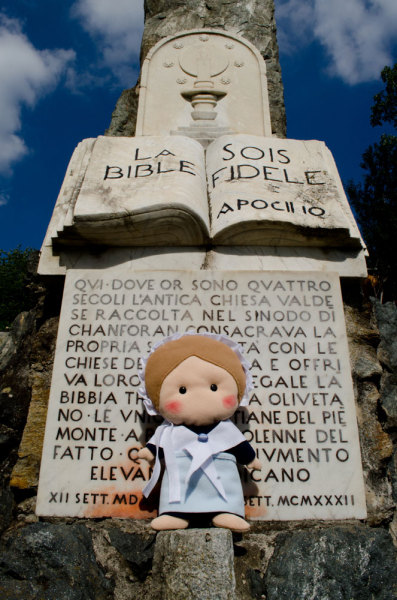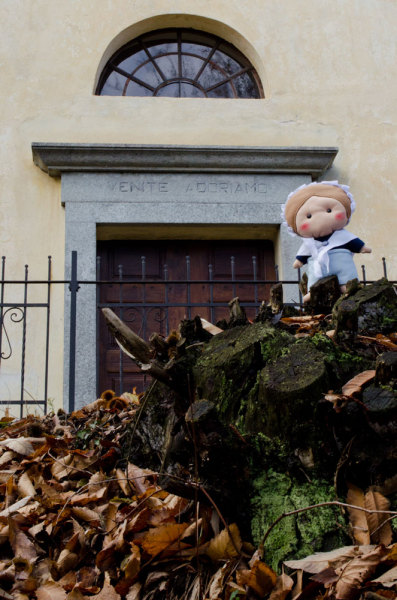Hello guys, welcome back!
Our daily adventure is going to be a bit special, ‘cause I want to talk to you about the Waldensian movement and about the celebration that will be commemorated next Tuesday…
On February 17th, in fact, all of Waldensian communities, in particularly in the valleys near Pinerolo, celebrate an important religious and civil anniversary: the granting of civil and political rights that will lead to freedom of worship.
For this reason, the evening before February 17th great bonfires are lit, with people gathering around the fire, singing and praying to remember this important event. The day after, in the Valleys all of shops, offices and schools are closed, and people use to attend the cult (some women also put on traditional clothes) and, after the cult, they use to meet together to eat the typical Waldensian dishes, such as the “supa barbetta” (a typical soup from the Valleys).

Right on February 17th, 1848, King Charles Albert, who ruled these lands, wrote the Patent Letters, in which the King granted to Waldensian people the civil and political rights; before that date, in fact, those who did not follow the religion of the Kingdom would be persecuted.
In the past, laws forced subjects to profess the same religion of their king: those who opposed it were considered outlaws and could be punished in various ways, sometimes with taxes, with imprisonment and, in some dark periods, even with sentence to death.

Waldensians, in fact, are not part of the Catholic Church (unlike the biggest part of the Italian population), but they are Protestants, since in 1532 – during a meeting held in these valleys, in Chanforan – they decided to be part of the Protestant Reformation.
This reform has its origin in the protest against the Catholic Church of the 16th century, a time when the clergy lived in luxury and used to meddle in political affairs: Protestants were the ones that opposed to this situation, pushing for a comeback to a religion closer to the one described in the Gospels.

Waldensians are Christians who, since the Middle Ages, have decided to follow the example of the French merchant Valdo: he decided to give up all his possessions and live in poverty, as the first Christ’s disciples, by following what is written in the Bible.
What do Waldenses believe in? During the function only two sacraments (the ones described in the Bible) occur: Baptism (celebrated when kids are very young or when they are 16) and the Holy Communion; for the same reason, the only religious recurring events are Christmas and Easter; those who are called to carry out the pastoral service (the shepherds, who normally administer Sunday worship) do not receive a special power that distinguishes them from other members. The cult goes only to God, who is Father, Son and Holy Spirit, and Waldensians believe in a church without hierarchy and in which the only head is Jesus Christ.

Both Waldensians and Catholics are Christians: life for them means faith, hope and love. They have faith in one God, who created the world and that is the Father of all humanity and lives among human beings through his Spirit, gathering them all together in an unique Church (formed by all who believe in Him and who have been baptized) . The word of God is written in the Bible, that is testimony of the faith of the people of Israel and of the first Christian community. Christians believe that Jesus Christ is the Son of God, and that He lived, died and resuscitated to save and free mankind from evil.

Jesus Christ, during his life in Palestine, announced the coming of God’s Kingdom presenting himself as the Messiah of Israel: he promised the liberation of the land from the dominion of the Romans without the use of weapons, but simply placing trust in God. Jesus had a very strong personality and, as reported by His disciples in the Gospels, He was able to work extraordinary miracles. Since He was announcing a new message of freedom, He incurred the hatred of the leaders of the people, and for this He was crucified. After three days He resuscitated, showing that He was God’s Son. Since then His disciples, although divided into many denominations around the world, have been called Christians, and keep on carrying on His message of love and hope.

Do you want to read the tale in Italian ?
